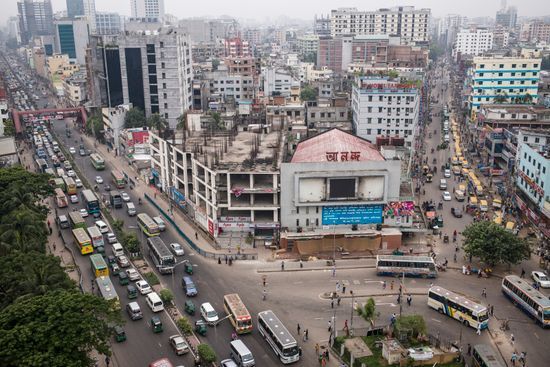
Cities have been at the centre of the COVID-19 pandemic where more than half of the world’s population reside. Cities have been deeply impacted by the ongoing COVID-19 pandemic which continues to highlight the wide socio-economic inequities and multi-hazard risks that exist in the urban settings. This course examines the existing risk in cities and aims to introduce participants with knowledge and tools to manage all-hazard risks for effective health emergency and disaster risk management and building resilient cities from a health perspective. Additionally, the course highlights the importance of using equitable, gender-sensitive and human rights-based approaches; including the whole of society and maintaining alignment will all relevant international frameworks.
Photo credit: WHO/ F. Lang
Язык: English
English
HSP, Health topic
Информация о курсе
Overview: With a projected 68% of the global population expected to be living in cities by 2050, risk-informed emergency preparedness and multi-sectoral planning in cities are critical to prevent, prepare for, and mitigate the impacts of emergencies. This course aims to highlight the importance of health emergency and disaster risk management for city resilience in line with the International Health Regulations (2005) and the Sendai Framework for Disaster Risk Reduction. The course will focus on the:
- Concepts and tools of Health Emergency and Disaster Risk Management;
- Strategic risk assessment and planning;
- Safety, security and resilience of health facilities;
- Multisectoral partnerships through resource mapping and impact analysis;
- Concepts and tools to address the challenges of zoonotic hazards in urban and suburban settings and the approach to limit their spread using the Joint Risk Assessment Operational Tool, applying one-health principles; and
- The critical operational tools for continuous system testing and improvements in cities using Country Simulation Exercises (SimEx) and reviews.
The target audience for this course are local and national government officials in charge of disaster risk reduction and management, urban development and planning, public health; emergency preparedness, national associations of municipalities; urban resilience and development practitioners; civil society, private sector, academia.
Learning objectives: By the end of this course, you should be able to:
Explain the importance and key areas of all-hazard disaster risk management in cities, for better preparedness against health emergencies and disasters;
List and describe relevant concepts and existing tools for local risk assessment, one health in cities, simulation exercises, resource mapping and partnerships, aiming all-hazards risk reduction in cities.
Course duration: Approximately 1.5 hours.
Certificates: A Confirmation of participation will be available to participants who complete 100% of the course material.
Содержимое курса
Opening remarks
Introduction: Health and cities:
This introductory module gives an overview of the importance of Disaster Risk Management and Resilience (DRR) in cities keeping health at the heart. It highlights the importance of knowing priority risks in cities and the various entry points to address them with the key principles of inclusiveness, equity and human rights-based approaches.Module 1: DRR in cities – Key concepts and principles:
By the end of this module, you should be able to: describe the key principles and concepts of disaster risk management and resilience in cities, and to access the tools and guidance available for enhancing preparedness for DRR in cities.Module 2: Resource mapping and impact analysis on health security investment in cities:
By the end of this module you should be able to: explain the concept of resource mapping to identify gaps and needs; the approach to resource mapping; identify needs for technical assistance through the REMAP tool, and describe the Global strategic preparedness network (GSPN).Module 3: One health in cities:
By the end of this module, you should be able to: describe the concept of "one health" in cities and ‘human-animal-ecosytems’ interface, and to access the ‘Joint risk assessment operational tool’ and the Tripartite Zoonoses Guide.Module 4: Testing systems through emergency exercises and learning through response reviews:
By the end of the module, you should be able to: explain the concepts of simulation exercises in cities (table top exercises, drills, functional exercises, full-scale exercises), and to describe the basic concepts for applying intra-action reviews (IAR) and after action reviews (AAR) in cities.Closing remarks
Записаться на этот курс
Требования для получения сертификата
- Получите сертификат об участии, изучив не менее 100% учебного материала курса.